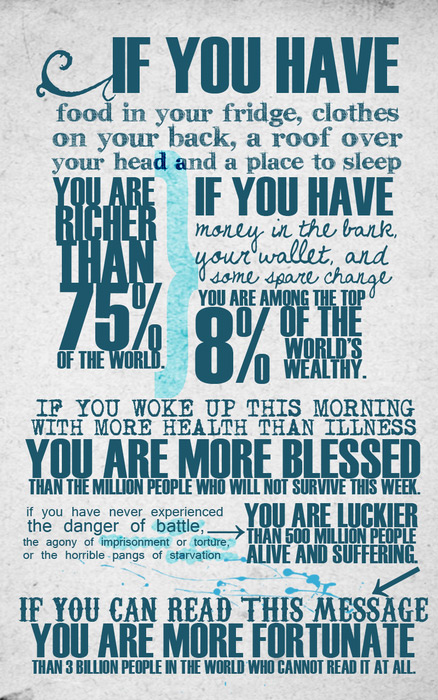All self-pity is rooted in people taking themselves too seriously.
– Tom Robbins
Of all human habits, chronic self-pity is perhaps the most unhealthy.
Why?
Self-pity is like a psychic bloodsucker that drains away our hope, happiness, gratitude, and good humor.

Spiritual Wanderer Course:
Find your deepest path and purpose in life as a spiritual wanderer. In this immersive course, you get 3+ hours of content, workbooks, meditations, a premium test, and more!
Self-pity fuels depression, constant anxiety, and feelings of emptiness and isolation.
While self-pity is totally normal and we all pity ourselves from time to time, it can become like a virus in our minds when turned into an unconscious habit.
Table of contents
What is Self-Pity?
Self-pity is an exaggerated sense of pity over one’s own life, position or circumstance.
Most of us experience self-pity throughout our lifetimes, and although it can be a self-soothing mechanism that assists us in later accepting/changing our circumstances, sometimes it can stick to us like a psychic leech.
When self-pity is made into a habit, it not only stunts our self-worth, but it also creates self-destructive cycles of self-sabotage.
11 Signs of Self-Pity

Self-pity is our worst enemy and if we yield to it, we can never do anything wise in this world.
~ Helen Keller
Common signs of a person given to harboring too much self-pity include:
#1 You find it hard to laugh at life and at yourself
Taking yourself too seriously and finding it difficult to laugh at your predicaments and defeats are tell-tale signs of self-pity.

Shadow & Light Membership:
⭐️⭐️⭐️⭐️⭐ "Straight from the very first weekly email, this has been mind-blowingly powerful, the synchronicity and the on-vibe contents resonate uncannily with my soul’s current challenges." – Marie
#2 You tend to crave for drama
You have a melodramatic streak that stems from extremist types of thinking (e.g., black-and-white + all-or-nothing mindsets).
#3 You tend to crave for sympathy
Self-pity is so addictive because it gives us the momentary pleasure of being supported, cared for, and emotionally pampered. Unfortunately, this is an unhealthy way of developing emotional bonds and connections with other people.
#4 You tend to be an individualist
Self-pity is one of the most effective ways of keeping yourself separate and independent from the friends, family, and people around you.
#5 You tend to be a past-orientated person
Some people live in the present, others live in the future, and still, others live in the past. Self-pity is closely linked to past-focused mindsets that dwell on events that happened a while ago.
#6 You have low self-esteem
People with low self-esteem tend to crave the acceptance and affection of other people as a way of feeling better about themselves. The presentation of having a “tragic life story” that self-pitying people often talk a lot about creates an excellent way of collecting flocks of supporters.
#7 You have a melancholic temperament
I’ve written about the melancholic, sanguine, choleric, and phlegmatic temperaments before. The melancholic temperament, in particular, is given to bouts of brooding and deep introspection, which can serve as a perfect breeding ground for self-pity.
#8 Deep down, you don’t believe you’re worthy of love
This stems from low self-esteem and creates a cycle of self-destructive behavior. Self-pity is one of the greatest tools for the self-destructive person. It creates self-fulfilling prophecies and alienates all the people you love and admire from you.
#9 You have an unhealthy habit of being self-absorbed
Quite simply, the more self-absorbed you are, the more likely you are of falling into the trap of self-pity.
#10 You have a strong fighting instinct
Having a strong fighting instinct can be a good or bad thing depending on what you choose to use it for. When used in a negative sense, the fighting instinct is used to battle against life, fight against the tide, and fight against accepting reality.
#11 You subconsciously feel guilty
Often, self-pity is an unconscious way of avoiding taking responsibility for personal actions or decisions made in the past. When we find it too difficult to accept the wrong that we’ve committed, sometimes we tend to hide from it by making ourselves the victims, rather than other people. In this case, self-pity is the perfect self-defense mechanism.
Would you like to save this?
Your information will never be shared.
Self-Pity & Shadow Work

Self-pity is easily the most destructive of the non-pharmaceutical narcotics; it is addictive, gives momentary pleasure and separates the victim from reality.
– John W. Gardner
If you’ve made it up to this point in the article, chances are that something within your life has recently shone a light on this negative trait within yourself.
Whether it was pointed out by another person, discovered while doing some journaling, or revealed by a dark night of the soul, self-pity can make life feel hellish.
We can feel insecure, ashamed, embarrassed, or flat-out angry toward ourselves when coming face to face with our own self-pity.
Don’t worry. As I said before, this is a normal human trait. Also, no one is perfect, and that’s okay. So practice self-kindness. The good thing is that now you’re aware of this habit and you can do something about it.
One powerful preliminary step I recommend to overcoming self-pity is to explore your toxic core beliefs.
At the very heart of chronic self-pity is at least one deeply held mistaken belief about ourselves. So I strongly recommend reading and learning about core beliefs.
12 Essential Ways of Overcoming Self-Pity

Discovering that we suffer from chronic self-pity – and taking steps to overcome this issue – is part of the process of self-growth and spiritual transformation.
So if you suspect that you constantly self-pity, don’t fight it.
Don’t hide from your self-pity in shame or embarrassment, rather, face it and accept it as a fact of your life.
Embrace the fact that you are flawed and fallible … just like everyone else. Only then can you hope to make long-lasting changes within yourself!
Below you’ll find a list of beginner-friendly ways to overcome self-pity:
1) Keep a gratitude journal and write in it for 10 minutes every day
Keeping a gratitude journal, where you write down a list of things that you’re thankful for each day, is one effective way of re-programming your thought patterns.
Nothing is too small or irrelevant to write down. For instance, something like “I’m thankful that this cup of tea is warm” or “I appreciate the softness of my pillow,” are perfect candidates for being grateful.
Whatever you are thankful for, write it down!
Learn more about how to journal, or if you prefer a more guided approach check out our self-love journal.

Inner Work Journal Bundle:
⭐️⭐️⭐️⭐️⭐ "I’ve just begun, and I can tell this is an investment that will make an impression on and for the rest of my life. Utilizing these workbooks is like my best friend (ME!) right there by my side, holding my hand. Highly recommend!!!" – Monica
2) Grow a plant. Raise some herbs. Garden!
According to a survey conducted in 2013, 80 percent of gardeners reported that they were “happy” and “satisfied” with their lives, compared to the 67% of non-gardeners surveyed.
Not only does gardening remove the attention and energy you place on yourself and redirect it to something other than yourself, but it also instills you with a sense of accomplishment!
3) Sit in the sun
According to studies, vitamin D (which you gain from the sun), actually helps to improve your mood and energy levels, whilst decreasing depression. Ensuring that you get enough sun exposure each day is a good way to fight self-pity.
4) Watch funny videos, clips, and pictures
This is an excellent way of breaking yourself out of the self-pity cycle. Good websites to check out are Reddit and YouTube.
5) Get a pet animal
Whether it’s a dog, cat, bunny, guinea pig, fish, studies show that caring for a pet helps to reduce depression, thus helping you to overcome self-pity.
6) Read this infographic
This is powerful and eye-opening:

7) Take regular long walks
Exercise has been proven to boost the levels of endorphins in your brain, which are responsible for elevating your mood (plus a million other benefits). You may also like to consider joining a gym, or investing in your own sports equipment if you prefer privacy.
8) Meditate
Meditation is a miraculous cure for many mental ills, however, it does require patience and persistence. By meditating for just 10 minutes a day, you increase your ability to become self-aware, and thus your ability to catch yourself in the act of fulfilling self-pitying thoughts.
9) Inner work
Inner work is an all-encompassing life practice that involves developing more self-awareness.
When we practice inner work, we consciously decide to go on a journey to reconnect with our inner needs, core wounds, and true life purpose.
A big part of inner work involves becoming aware of your shadow self and the way in which it undermines your life.
However, before diving into your shadow (which can be scary!) I recommend learning how to love yourself – it’s a crucial preliminary step.
10) Help those less fortunate than you
Volunteering helps put your life into perspective, encouraging you to appreciate what you have more. Volunteering also boosts self-esteem, confidence, and compassion – in short, it gets you out of self-pitying spirals!
11) Try to minimalize your environment
Cluttered and messy environments contribute to paranoia, hoarding tendencies, anxiety, and depression. By simplifying your environment, you may find that your psychological and emotional welfare is significantly increased.
12) Seek for inspiration in the words of others
There’s so much inspiration out there on the internet. Facebook, Pinterest, Twitter, Instagram, and pretty much every social network, blog, and microblog known to humanity have something uplifting to provide.
I personally gravitate to saving inspiring quotes because they’re so readily available.
Why do we see these inspiring quotes everywhere? Answer: because we LOVE them.
We are deeply affected by the words of others. And sometimes, we find a quote that speaks to the deepest parts of our souls, a quote that changes us and revolutionizes the way we see everything.
So why not create a collection of your own inspirational quotes? One of my favorite ways is by creating themed boards on Pinterest.
Conclusion
Laugh at yourself and at life. Not in the spirit of derision or whining self-pity, but as a remedy, a miracle drug.
~ Og Mandino
Feeling sorry for yourself is normal.
But oftentimes this habit can cause us to avoid taking personal responsibility and bypass taking action.
Self-pity can also be a false substitute for love from others. But by learning how to practice self-care and adjust your mindset, you can create a life environment that nourishes and supports you in the deepest way.
If you’ve discovered that you struggle with this issue, be kind to yourself. Understand that self-pity is a maladaptive coping mechanism, but one that you can remove from your life with time, persistence, and patience.
Whenever you feel the call, there are 3 ways I can help you:
1. The Spiritual Wanderer Course: Need "big picture" direction, clarity, and focus? Our Spiritual Wanderer course is a crystallization of 10+ years of inner work, and it can help you find your deeper path and purpose in life as a spiritual wanderer. You get 3+ hours of audio-visual content, workbooks, meditations, a premium test, and more!.
2. Shadow & Light Membership: Want weekly intuitive guidance to support you on your awakening path? This affordable membership can help you to befriend your dark side, rediscover more self-love, and reclaim inner wholeness.
3. Spiritual Awakening Bundle: Looking for a collection of all our essential transformative resources? You get five enlightening ebooks, seven in-depth journals, plus two empowering bonuses to help you soul search, heal, and awaken.








My husband drains me. His negativity.,no one good enough to his friend. my friends left to a private school. That was 40 years ago.
Men only bond with sports. His beliefs are very self limiting
He was out truck driving and I became happier by myself. Since he back I feel drained.
I’m considering divorce . I don’t care I’m 65
I hope you’ve found a resolution, Mair. <3
My teacher told me that i have self pity but i never really understood what he said , I now understand that now . The article really helped me, Thank You
I’m so glad this helped Stephen!